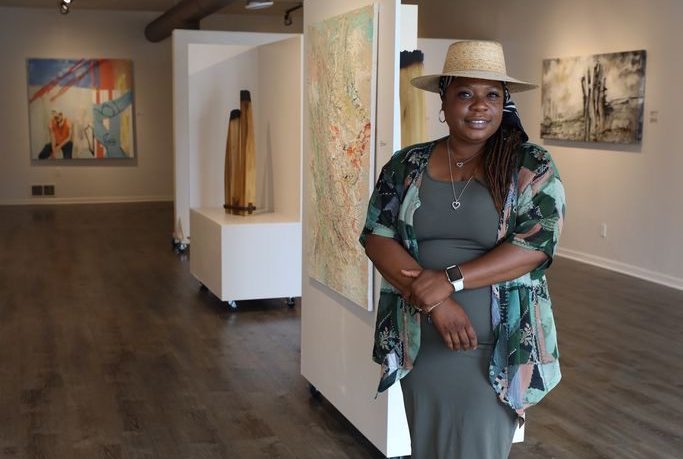Sixteen Black-owned and operated arts and cultural spaces in Detroit have partnered with the city’s Office of Arts, Culture & Entrepreneurship (DetroitACE) to highlight and cross-promote exhibitions and programs at each location throughout Black History Month. The project, titled Sacred Spaces, invites Detroiters and tourists alike to learn about, visit, support and follow the venues through February 28, 2023.
Through the website, visitors can access information about each gallery and download a calendar of events taking place on each day of the month at Black-owned art spaces across the city. “Why? Because our spaces and stories are sacred,” it states on the website’s front page, and “… because we want the city of Detroit and its communities, the country and the world even, to know who and where we are and to support and enjoy the work we are doing to elevate and preserve Black culture.”
Here’s the real take-away: There are as many as twenty thriving commercial arts and cultural spaces in Detroit that are entirely Black-owned and operated. Twenty! This speaks volumes to core Detroit culture, Black entrepreneurship, and the immense power of the arts and creativity flowing within the city’s limits.
Some of these art spaces, such as Arts Extended on Detroit’s west side, The Carr Center in Midtown and Jo’s Gallery on the Avenue of Fashion, have operated continuously for thirty, forty, and fifty years respectively. Of course, some galleries have come and gone over the decades, but the Motown landscape keeps welcoming and supporting newcomers, such as Blackbird Gallery in the Fisher Building, Irwin House Gallery on the city’s famed West Grand Blvd., and Norwest Gallery of Art in the Rosedale Park neighborhood – all of which have been in business for five years or less.
The thirst and love for art in Detroit is so robust that there always seems to be a place and purpose for one more. From storefront galleries on major avenues, to transformed houses on residential streets and art spaces lodged within larger institutions, each of these sixteen participating businesses carries its own vibe and serves its own audience and mission.
Despite the city’s diminished, but gradually rebuilding population, a reported median household income of $30,000, gentrification and the loss of Black home ownership over the years, these art venues are proving not only to be solid, but vital to preserving, uplifting and sustaining Detroit’s Black and creative culture, while adding vitality and value to inner-city neighborhoods.
Eminent artist, Shirley Woodson, who founded the National Conference of Artists (NCA) Michigan Chapter with her husband Edsel Reid in 1974, spoke of 12 Black galleries that were operating in Detroit in 1992. She looked back at the ‘80s and the ‘70s where there were comparatively high numbers of commercial Black cultural spaces operating in Detroit. “My husband used to say that Detroit is the only place where people get dressed up to go to art openings. We take it very seriously.” Woodson added that she was pleased at the support artists have been able to receive in the city over the years.
NCA Gallery is participating in Sacred Spaces along with Arts Extended, Blackbird Gallery, The Carr Center, Design Studio 6, The Fel’le Gallery, Harper Galleries, Irwin House Gallery, Liberal Arts Gallery, Live Coal, Mac Galleries, Mack Alive, Norwest Gallery, Sherry Arts, and All Things Marketplace. DetroitACE, with support from the Ford Foundation, will host a culminating reception at the Charles H. Wright Museum of African American Art on Tuesday, February 28th. The event is designed to bring all the galleries and their artists and guests together in the spirit of reflection and celebration. Visit sacredspaces-tourdetroit.com to follow the project.



